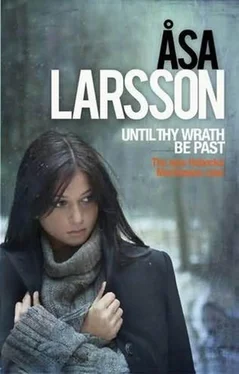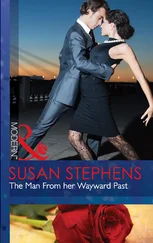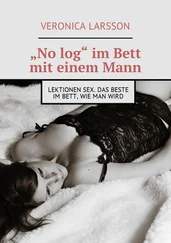“I just want to know how things are going,” Mella said.
Taking off her woolly hat and mittens, she entered the room. Granlund folded her arms and swallowed thousands of words. It was cold in there, as always. A smell of damp concrete, steel and dead bodies.
“I don’t think it was an accident,” Mella said, nodding in the direction of Hjörleifur’s body.
“I’m told he fell off a stepladder in his kitchen,” Pohjanen said, without looking up.
“Who told you that?” Mella said, annoyed. “Sven-Erik?”
Pohjanen looked at her.
“I don’t think it was an accident either,” he said. “The injuries to the brain suggest a powerful trauma to the head, not a fall.”
Mella pricked up her ears.
“A blow?” she said.
“Very likely. With a fall there is always a contrecoup injury…”
“Do you mind if I phone for an interpreter? It’s several years since I studied Latin, and…”
“If you just let me finish, Mella, you might learn something. Imagine the brain hanging inside a box. If you fall on your face, the brain swings forward and you get a contusion in the frontal lobe of the cerebral cortex on the contralateral side. And a corresponding injury on the occipital lobe. This is not what we have here. In addition, there were tiny fragments of bark in the wound.”
“A blow from a piece of wood?”
“Most likely. What do forensics say?”
“They say that the door frame in the kitchen has been wiped. You can see it quite clearly: it was pretty filthy, but at one point it is very clean, at a height where you would place a hand if you were leaning on it…”
Mella paused. The image of Hjalmar Krekula standing in the doorway of Kerttu Krekula’s kitchen came into her mind.
“Anything else?” Pohjanen said.
“The body seems to have been moved. He was wearing blue overalls, and they were crumpled up at the back of his neck in a way suggesting that he’d been dragged along by the feet. But that kind of thing can be misleading. You know that yourself. You might not die immediately. You might try to stand up, and there are death throes to take into account.”
“Any blood on the floor?”
“One place that had been wiped.”
Mella looked at Hjörleifur’s body. It was sad that he was dead, but now this was a murder case, no question about it. Now it was justified to drop all other lines of enquiry and concentrate on this one. Stålnacke would not like it. She had been right. He had been tramping around the crime scene. The forensic team were annoyed.
But that’s not my problem, she thought. He can go off and work on something else if he likes.
She zipped up her jacket.
“I have to go,” she said.
“O.K.,” Pohjanen said. “Where…”
“Rebecka Martinsson. I need to get permission to search a house.”
“By the way, this Rebecka Martinsson,” Pohjanen said, sounding curious. “Who exactly is she?”
But Mella had already left.
At Kiruna police station Mella gave a brief summary of the preliminary post-mortem report on Hjörleifur Arnarson to District Prosecutor Martinsson. Mella’s colleagues Stålnacke, Olsson and Rantakyrö were also present.
Vera was lying at Martinsson’s feet. Rantakyrö had taken the dog from Hjörleifur’s house, left her in Martinsson’s office and then galloped off to the supermarket to buy some dogfood. Rejecting the food, Vera had drunk a little water and lain down.
Speaking of dogs, Martinsson thought, contemplating the police officers crowded into her office… What a pack they are.
Mella was a different person from when Martinsson had seen her last, exuding energy now. The alpha bitch once more, enthusiasm for the hunt obvious in her every movement. She had not even taken her hat off, nor had she sat down. Olsson and Rantakyrö were wagging their tails eagerly; their tongues were hanging out expectantly, and they were straining at their leads. Only Stålnacke sat listlessly on Martinsson’s extra chair, staring out of the window at nothing.
“We’ve had a response from the National Forensic Laboratory regarding the flakes of paint under Wilma Persson’s fingernails. They match the paint on the door at the Sillfors’ summer cottage. And Göran Sillfors used the same paint on the shed door that was stolen. So we can now be sure that someone placed that door over the hole in the ice when Wilma and Simon Kyrö were diving. They were murdered.”
“Kyrö hasn’t been found yet,” Martinsson said.
“That’s correct. And now Hjörleifur Arnarson. I’d like permission to conduct searches at Hjalmar and Tore Krekula’s places.”
Martinsson sighed.
“There needs to be reasonable suspicion,” she said.
“So what?” Mella said. “That’s the least thing required by law. Come on, Martinsson. It’s not as if I want to go and arrest them – but ‘reasonable suspicion’… Let’s face it, that could apply to someone who, say, shopped at the same supermarket as the victim. Come on. This would never have been a problem for Alf Björnfot.”
Chief Prosecutor Alf Björnfot was Martinsson’s boss. These days he worked mostly in Luleå and let Martinsson take care of Kiruna district.
“That may be, but you’re dealing with me now, not him,” Martinsson said slowly.
Olsson’s and Rantakyrö’s tails stopped wagging. The hunt had been called off.
“They’ve threatened me and tried to scare me off the case,” Mella said.
“There’s no proof of that,” Martinsson said.
“I rang Göran Sillfors. He told me that he’d mentioned to someone who lives in Piilijärvi that we’d paid a visit to Hjörleifur. Piilijärvi’s a village! If one person knows something, everyone knows it! Tore and Hjalmar must have heard that we had been talking to Hjörleifur. They no doubt went straight to his place after they’d spoken to us in the car park.”
“But we don’t know that for sure,” Martinsson said. “If you can prove it – if someone has seen them near or even in Kurravaara, you’ll get your permission.”
“Oh, for Christ’s sake…” Mella groaned.
The whole pack, apart from Stålnacke, looked imploringly at Martinsson.
“We’d be reported to the Parliamentary Ombudsman,” she said. “The Krekula brothers would just love that.”
“We’ll never catch them,” Mella said dejectedly. “It will be another Peter Snell case.”
Fifteen years earlier, a thirteen-year-old girl, Ronja Larsson, had gone missing one Saturday evening after visiting some friends. Peter Snell was an acquaintance of the family. One of the girl’s friends had said that he had made advances, and that Ronja had thought he was “creepy”. The morning after her disappearance, Snell had poured petrol into the boot of his car and set fire to it in the forest. When interrogated, he had denied committing a crime, but could not give a satisfactory explanation for burning his car.
“He doesn’t need to,” Chief Prosecutor Alf Björnfot had said to Mella. “There’s no law to stop you burning your own car if that’s what you want to do. It proves nothing.”
There had been vain attempts to find D.N.A. traces in the burnt-out wreck. The girl’s body was never found. The case was written off, closed as far as the police were concerned. They knew who the murderer was, but couldn’t produce enough evidence to charge him. Snell owned a break-down firm. Before the Ronja Larsson case, the police had frequently used his break-down lorries in connection with traffic accidents and similar situations. Following the case, they cut him off. He threatened to sue.
Martinsson said nothing for a few seconds. Then she smiled mischievously at the Kiruna police officers.
“It’ll be O.K.,” she said. “We’ll establish a link between them and the crime scene. Then we’ll be able to turn their houses inside out.”
Читать дальше












